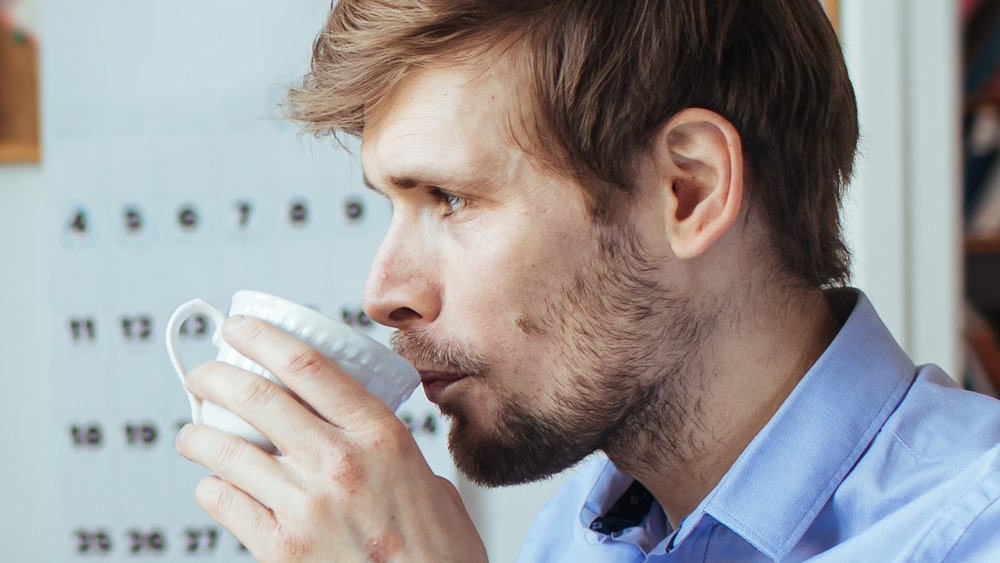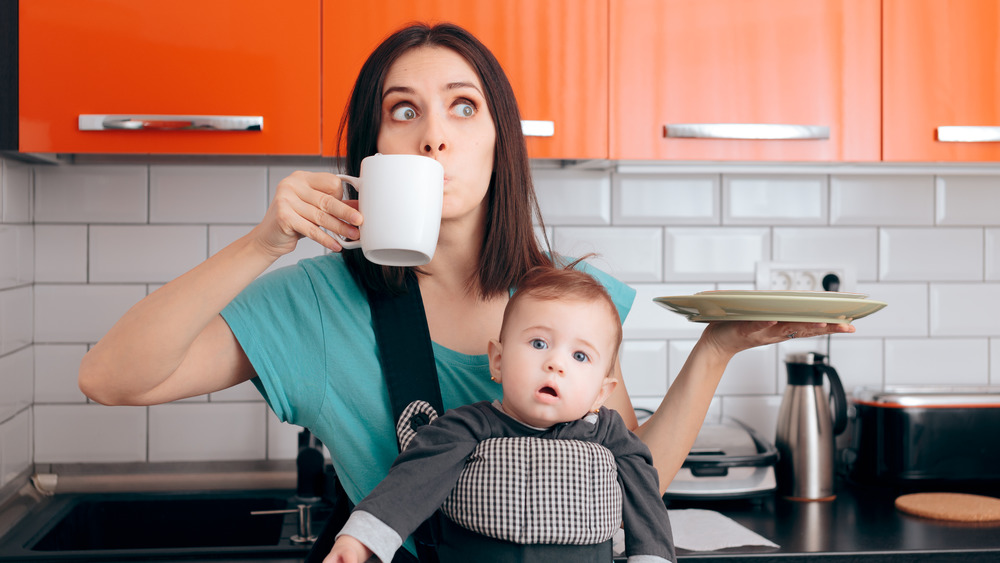The Real Reason You Should Limit (Or Cut Out) Caffeine For Good
From veganism to the new sober-curious movement, people all over the world are cutting out potentially harmful substances. Following suit, others have opted out of their morning cup of coffee. Why on Earth do that? Well, since caffeine is a drug and impacts your nervous system, many people would rather go without it. According to Healthline, caffeinated products make up a nearly $25 billion industry, meaning that most of us are running around feeling jittery. However, it may be in your best interest to evaluate your relationship with caffeine to see if it's helping or hampering your mental health.
For people who struggle with anxiety, limiting or eliminating caffeine is a great starting point for feeling better. Since caffeine stimulates various hormones and the nervous system, it can spur a fight-or-flight state of being, the outlet explains. Considered a stimulant, VeryWell Mind notes, the caffeine molecule creates energy by stoking the nervous system — also the system responsible for anxiety. Essentially, if you're feeling worried or anxious, then drink coffee, it increases this activity and can make things worse. Healthline even explains that a high intake is linked to depression in adolescents.
Furthermore, people who ingest a lot of caffeine may struggle to absorb the full amount of nutrients from their food. The outlet reports that tannins within the substance can block the full absorption of nutrients like iron, calcium, and vitamin B. If you're drinking a few cups a day or are considered a senior, this can be especially dangerous.
You'll sleep better with less caffeine
Many health professionals can't underscore the importance of good sleep enough. Unsurprisingly, loading up on caffeine can negatively implicate your sleep cycle — even if you only drink it in the morning. Besides hampering your ability to fall asleep, your coffee may be inhibiting the deep state of rest that you need to feel fully alert and for your body to carry out important functions while you snooze. Indeed, Healthline cites studies that report less time to fall asleep in people who are caffeine-free as opposed to those who drink coffee. Steering clear of coffee six hours before bed will help, but having it out of your system will make the biggest difference.
A high caffeine intake is also linked to a higher risk of osteoporosis, especially for women in menopause, VeryWell Mind contends. Additionally, caffeine can negatively impact women's hormones throughout their lives, rather than just during menopause. Healthline reports on a study that showed elevated estrogen levels in women who drank caffeine, which can increase the risk of various cancers and hormonal disorders.
Alongside benefits like lower blood pressure, fewer headaches, and a less-dependent brain structure, going caffeine-free can give you the chance to feel better more naturally.

